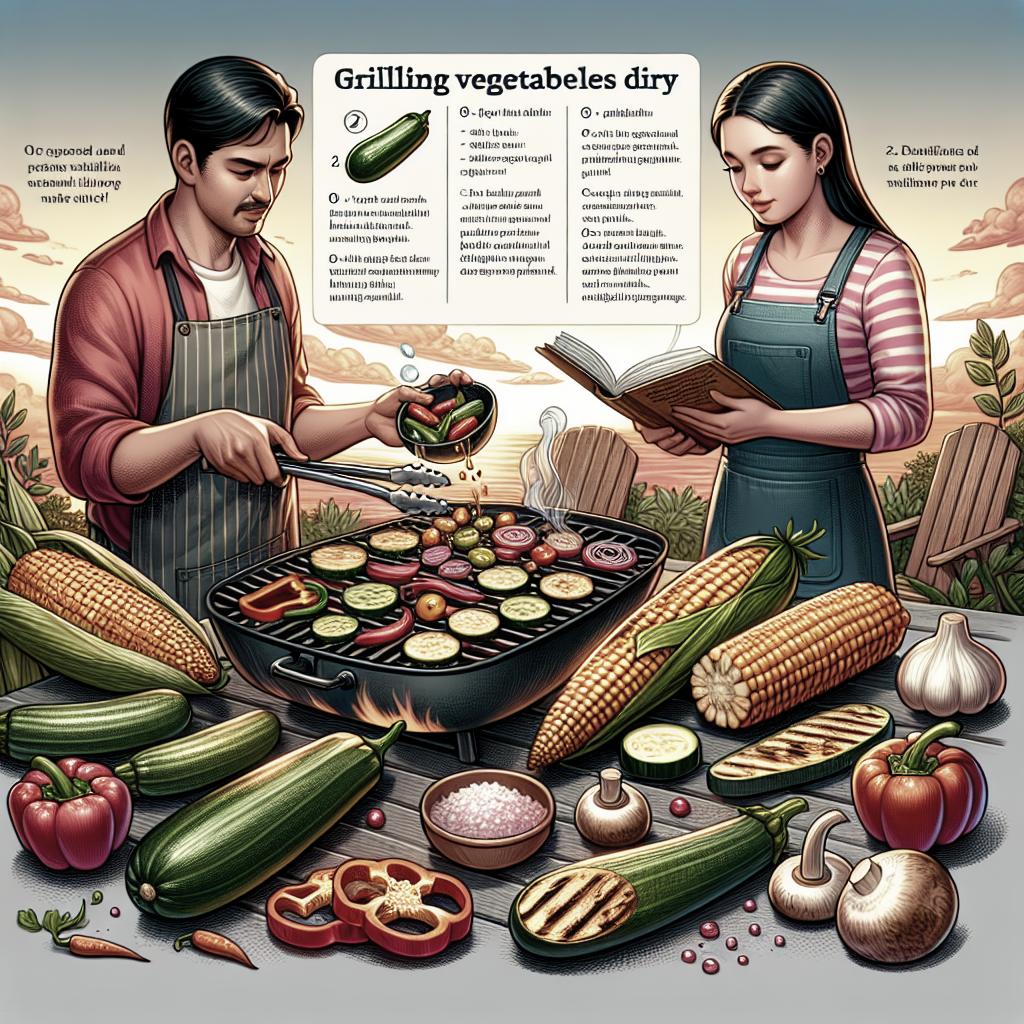“`html
How to Grill Vegetables Without Drying
Grilling vegetables can transform them into a delicious, smoky treat that’s packed with flavor. However, without the right techniques, they can easily turn dry and unappealing. In this guide, we’ll explore the various strategies in achieving perfectly grilled vegetables that remain juicy and delicious. From essential preparation steps to mastering grill techniques and seasoning tips, you’ve got everything you need to turn your grilling experience into a success. Whether you’re a seasoned grill master or a beginner, these insights will enhance your grilling game.
One of Jim’s Rants
Jim, a seasoned backyard barbecuer, often goes on rants about how grilling isn’t just about slapping food on a hot grate. He believes there’s a fine art to grilling vegetables—one that doesn’t leave them as dried husks.
“You see, most people make the mistake of thinking that grilling is the same as turning on a stove,” he would say. “Grilling is about coaxing flavors out, it’s about embracing the natural sweetness while keeping that moisture locked in.”
First, cut them up
The way you cut your vegetables plays a crucial role in how they grill. Always opt for uniform slices or pieces to ensure even cooking. If you have thicker veggies like zucchini or eggplant, slice them into disks, while bell peppers can be cut into wide strips.
Smaller vegetables like cherry tomatoes or mushrooms can be left whole, but it’s wise to keep them similar in size to prevent uneven cooking. Using skewers for smaller pieces can also help maintain uniformity and make turning them much easier.
Add oil and seasonings, but go easy on the salt
Oil is essential for preventing vegetables from sticking to the grill and helps avert drying out. A coating of olive oil or avocado oil enhances the veggies’ ability to achieve that mouth-watering char.
While seasoning is vital for flavor, it’s important to be judicious with salt. Salt can draw moisture out, making vegetables drier than desired. Instead, focus on herbs and spices for flavor without the moisture loss.
Learn how long to grill vegetables
Each type of vegetable has its grilling timeline. For instance, asparagus and green beans may only need 5–7 minutes, while denser vegetables like potatoes might require as long as 30 minutes.
Knowing the ideal time for each vegetable ensures that they come off the grill with the perfect texture—cooked through yet firm, with just the right amount of smokiness.
Learn how to use direct and indirect heat
Mastering the use of direct and indirect heat alters how your vegetables cook. For instance, direct heat is great for quickly searing vegetables like peppers and zucchinis, locking in their juicy interiors.
Indirect heat, on the other hand, is ideal for larger and denser vegetables, ensuring they cook through without charring excessively on the outside. Combining these techniques can greatly improve the overall grilling process.
Keep the grill lid handy
The grill lid traps heat and creates an oven-like environment, which aids in cooking vegetables thoroughly. This helps in retaining moisture while achieving an even cook.
However, it’s important to keep an eye on the process. Leaving the lid on for too long can result in steamed vegetables, which lose that coveted grilled texture.
Season with salt after cooking
Once grilled, allowing your vegetables a final seasoning with salt can enhance their flavor without compromising moisture. At this point, the salt aids in accentuating the grilled flavors without drawing out the water content.
Sampling as you sprinkle will help in ensuring that you reach an optimal balance of flavors, delivering well-seasoned and perfectly grilled vegetables every time.
Next Steps
| Step | Description |
|---|---|
| Cut Vegetables Uniformly | Ensure all vegetables have similar thickness for even cooking. |
| Oil and Season (Less Salt) | Use oil to prevent sticking and limit salt pre-grill. |
| Timing | Adjust grill time according to vegetable type. |
| Heat Method | Use direct heat for quick cooking, indirect for thoroughness. |
| Lid Utilization | Manage grill lid for moisture retention and proper cooking. |
| Post-Grill Seasoning | Season with salt after grilling to enhance flavor without losing moisture. |
“` This HTML document represents a well-structured and comprehensive guide on how to grill vegetables without drying them out, offering both practical advice and a helpful summary table for next steps in the grilling process.

